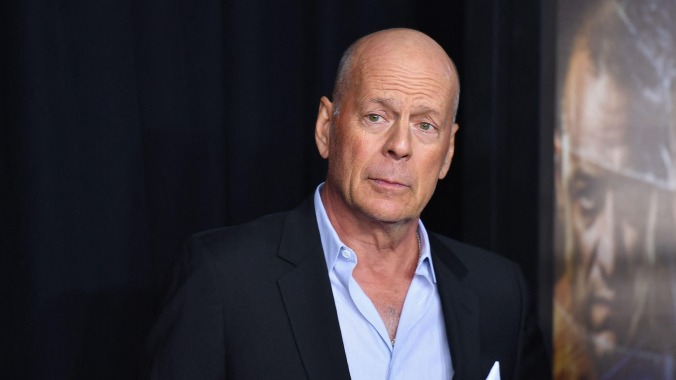No, Bruce Willis has not sold his "digital likeness rights" to a deepfake company
A rep for Willis has denied that a "digital twin" of the actor is about to start starring in movies on his behalf

A representative for actor Bruce Willis has issued a statement today, denying recent reports that he has sold his “digital likeness rights” to a company that makes AI-assisted deepfakes. Per THR, the rep said that Willis “has no partnership or agreement with this Deepcake company,” referencing a deepfake firm that had previously gotten permission from Willis’ estate to make a “digital twin” of the actor, which appeared in a commercial for a Russian telecommunications company last year.
This story has gotten massively distorted over the last couple of days— generating lots of headlines touting the idea that an AI clone based on 40-year-old Willis is going to start appearing constantly in movies, yippie-ki-AI-ing its way through action scenes and quips. So it’s worth tracing the path of the game of online telephone that got us here: From what we can tell, it all kicked off with an article from The Telegraph on Wednesday that highlighted Deepcake’s work, which the company touts on its web site. (Including an apparent quote from Willis, talking about “the precision of my character,” and stating, “It’s a great opportunity for me to go back in time.”)
But while that Telegraph article raises the possibility that the deepfaked Willis—which was produced by imposing a facial reconstruction culled from some 34,000 images of Willis over actor Konstantin Solovyov’s face—might be used for other projects, the whole “digital likeness rights in perpetuity” thing appears to have been an invention by other writers picking up on that story.
For one thing, there’s the simple fact that, per Deepcake itself, you can’t actually sell your likeness rights in the first place; you can only license them on an individual basis. (In this case, Deepcake says it worked with Willis’ agents at CAA to set up the commercial deal, and that any future deepfake projects would have to be authorized by the Willis camp.) Also, we’re not AI-image-generation experts or anything, but given how much effort, and source material, it takes to make a brief appearance by these kinds of digital creations—dependent as it is on the whims of lighting, facial angles, etc.—the idea that an “AI Bruce” is even possible for a longer-form project like a movie still feels patently unfeasible. It’s not like there’s some photorealistic virtual puppet just hanging around on a server somewhere, waiting to be inserted into films if his family gave the okay—which, again, to be extremely clear, they haven’t, and haven’t given any indication that they would.
Our sense is that the active imaginations surrounding this story stem at least in part from the condition of Willis himself—whose family announced, earlier this year, that he was “stepping away” from acting after being diagnosed from an aphasia. (See also: Disney’s recent use of AI technology to recreate James Earl Jones’ voice—with his guidance and permission—for Darth Vader’s appearance in Obi-Wan Kenobi.) It’s all evoked a certain feeling of protectiveness, especially as the last few years have seen Willis star in a number of low-budget action movies that he reportedly struggled to complete. There’s a ghoulish idea embedded here, to be sure—just not one that seems to be grounded in current reality.